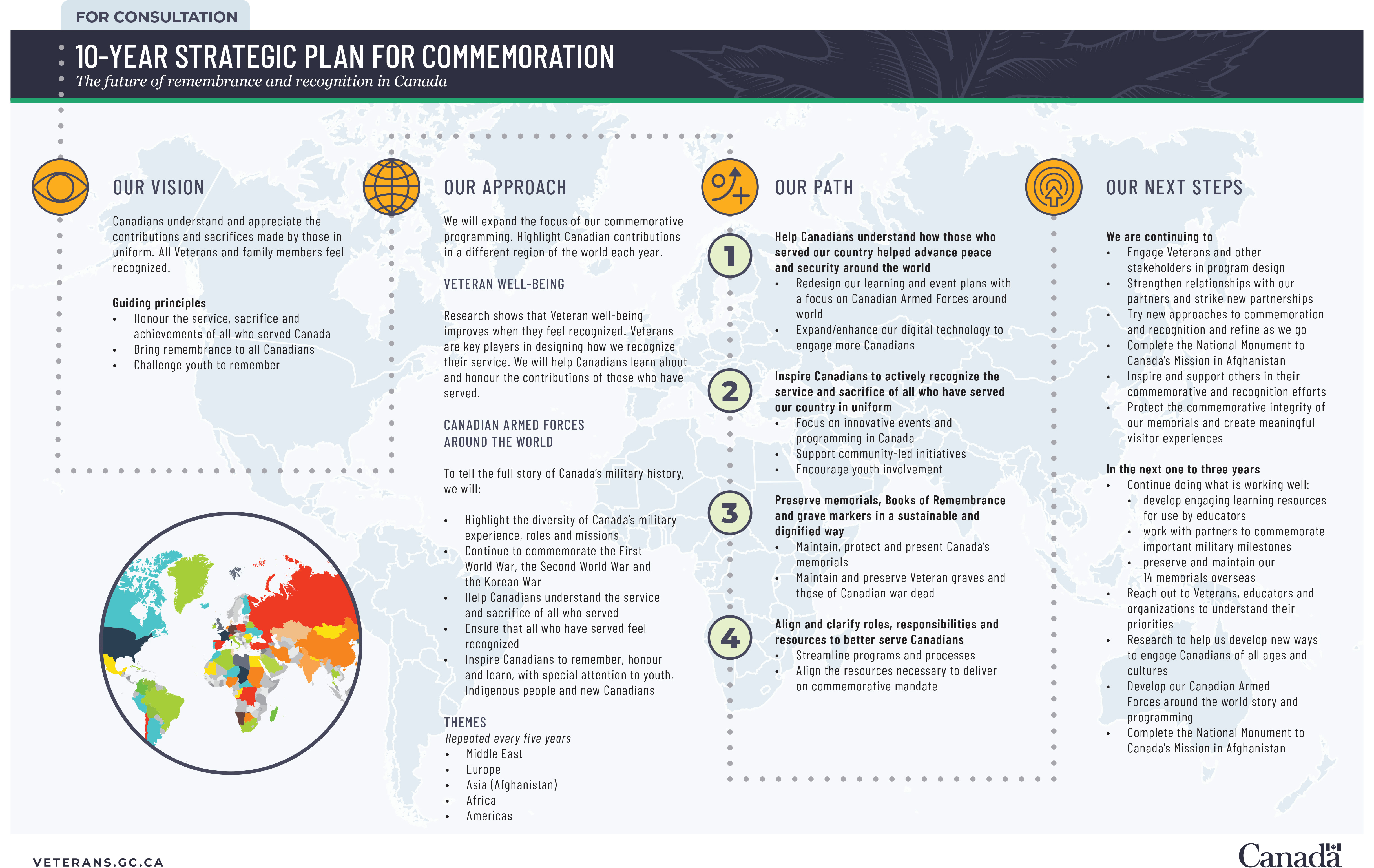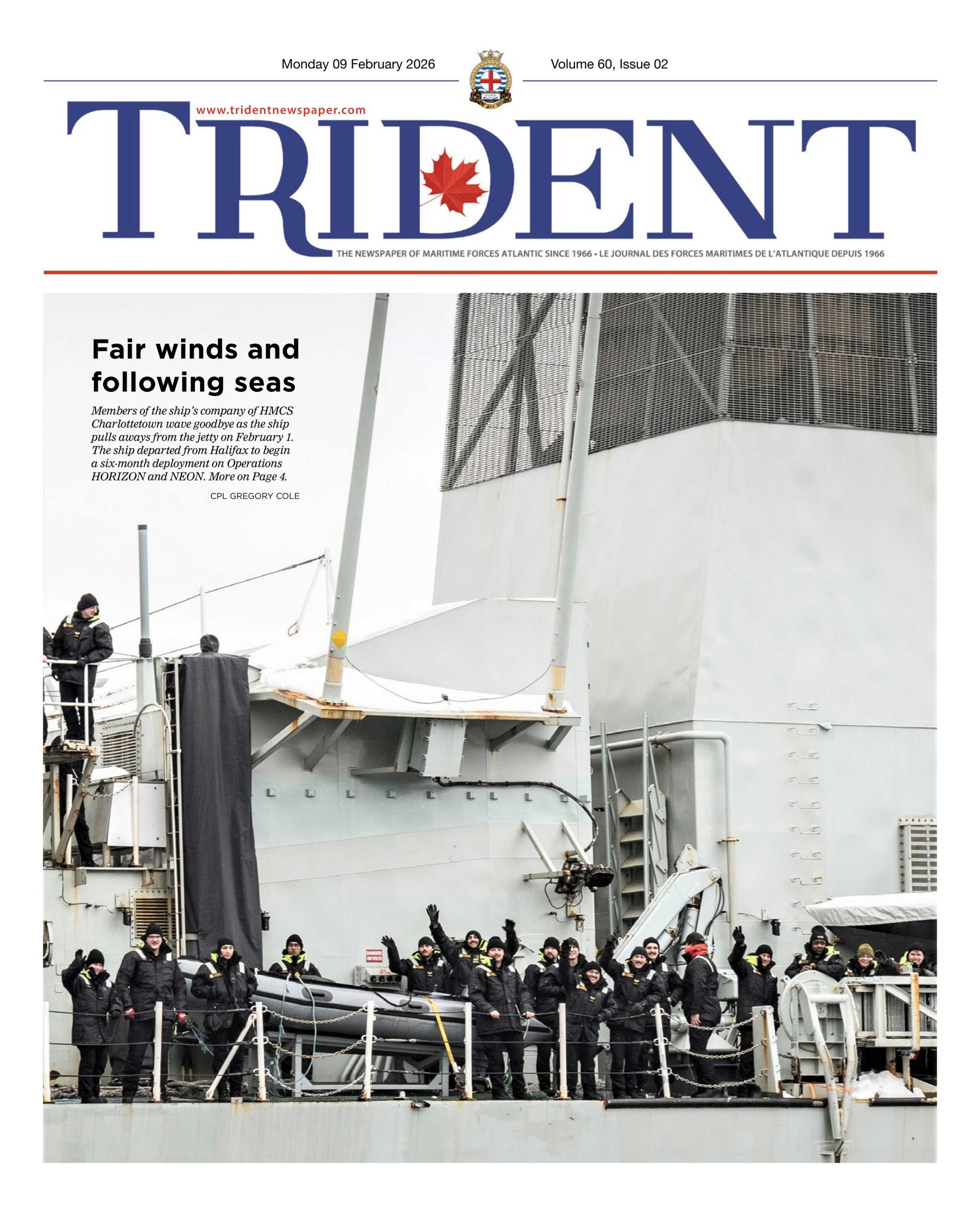By Joanie Veitch,
Trident Staff
How do you continue to honour veterans and their stories from the First and Second World Wars, and the Korean War, while broadening the lens on Remembrance Day and other commemorative events to include the experiences of all veterans, expanding beyond traditional anniversaries and battles?

SUBMITTED.
That’s the question Veterans Affairs Canada (VAC) is asking as they work on a 10-year strategic plan that aims to expand the focus of commemoration activities, in consultation with a Commemoration Advisory Group, other stakeholders and veterans themselves.
“As time passes, it’s important that the way we remember those who’ve worn the uniform continues to evolve. Our goal here is to make sure that we recognize and pay tribute to all of the brave Canadians who’ve stepped forward to serve—not just in the wars we so often think about, but also in the more modern day missions and operations that have followed them,” Minister of Veterans Affairs Lawrence MacAulay said in a recent livestream event to announce the plan.
Starting this month and continuing through 2021, VAC will consult with veterans and veterans’ organizations, former and current Canadian Armed Forces members, former and current RCMP members who served in international peacekeeping missions, and their families, to share their ideas about recognition and remembrance.
According to VAC spokesperson Emily Gauthier, the goal is to continue to share stories and mark key anniversaries from the First and Second World Wars, and the Korean War, at ceremonies at home and abroad, while adding more recent stories and contributions from international security, peace support and humanitarian missions, as well as domestic operations here at home.
“By expanding our scope, it is our hope that each person who served this country sees themselves in the stories we share, and feels included and recognized for their service,” Gauthier said. “Canada’s landscape is changing and the expanded scope in commemoration is intended to recognize that CAF members’ experiences are different than those who served before them. It is intended to acknowledge the evolving and diverse nature of Canada and its military —22 per cent are new citizens who may have little knowledge of Canada’s military contribution to peace and security in the world.”
Dr. Lee Windsor is a member of VAC’s Commemoration Advisory Group. A military historian and former member of the Canadian Armed Forces, Dr. Windsor teaches at the University of New Brunswick in Fredericton and is The Fredrik S. Eaton Chair in Canadian Army Studies at UNB’s Gregg Centre for the Study of War and Society.
“What I think is exciting about this new approach is that the impetus is coming from the veterans themselves,” he said. “From my own experience as a historian, the way our commemorative process materialized at the end of the First and Second World Wars was essentially organic and grassroots. It was the veterans and their families who drove the process—that’s how our cenotaphs got built across the country and that’s the way the ceremonies got organized — it was not driven by Ottawa, It was directed by the people who served. And it seems to me that’s what’s happening again.”
In the coming weeks and months, VAC will be reaching out to Veterans organizations and partners to try to “spread the word among their membership and networks,” Gaultier said.
To find out more about the new approach, or to register to share ideas and thoughts about how best to recognize and commemorate veterans’ experiences, go to: http://letstalkveterans.ca/commemoration.






